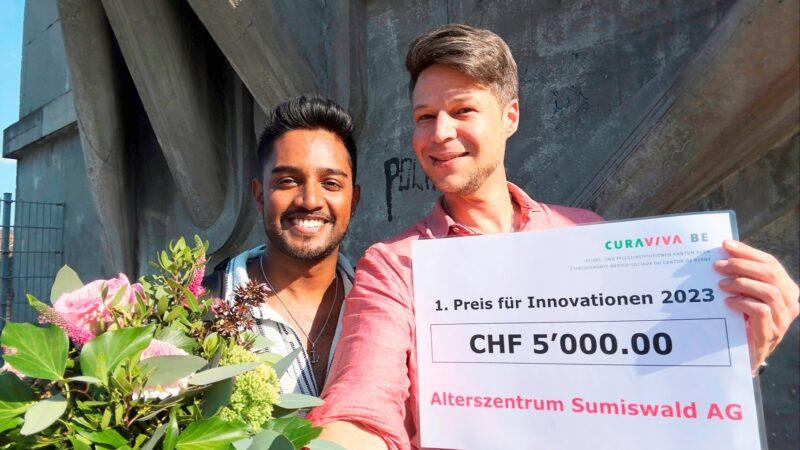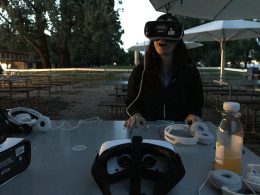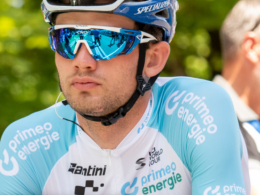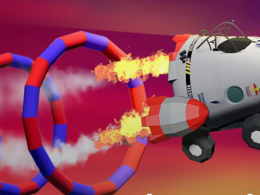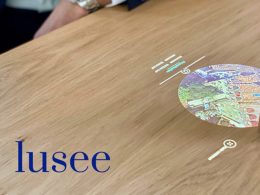Kaurisanker Kirupananthan and Fernando Eggenberger won the Curaviva Bern Innovation Award. Their virtual reality project brings incredibly real experiences into the home for residents of the Sumiswald retirement centre.
Fernando Eggenberger and Kaurisanker Kirupananthan, two young employees of the Sumiswald retirement centre (Sumia), won the prize awarded by Curaviva Bern, the cantonal industry association for service providers for the elderly. Their virtual reality project won them the innovation prize of CHF 5,000. The entire jury was impressed by the fact that older people are able to take virtual trips that they would otherwise no longer be able to take.
Bachelor thesis for something meaningful
Kaurisanker Kirupananthan has been known and loved as a civil defence worker at the retirement home for almost eight years. Kaurisanker Kirupananthan, who was studying computer science at the time, wanted to do something meaningful as part of his bachelor's thesis. Fernando Eggenberger, for his part, is deputy head of the activation department at Sumia. Independently of each other, they came up with the idea of bringing experiences, nature, customs, culture and crafts into the home for people who are no longer mobile and allowing them to experience this in a realistic way using virtual glasses. The Bern University of Applied Sciences for Engineering and Information Technology provided him with the necessary equipment.
Pleasant distractions in everyday life
The retirement home in Sumiswald uses the Qwiek.up projector to improve the well-being of people with dementia. Inspired by this, it was investigated how residents can use virtual reality glasses without risks to experience pleasant distractions in everyday life. Based on positive feedback, two specific VR applications were developed
with the aim of enabling simple, age-appropriate interaction and supporting the Snoezelen form of therapy, which uses sensory impressions to create a relaxing atmosphere and improve perception.
While Kirupananthan provided scientific support for the year-long project, Eggenberger knows the residents and is aware of their needs, but also their fears and deficits. "To make the virtual experience a real experience for them, it requires a lot of experience and sensitivity and, of course, the willingness to embrace the new," Eggenberger explains.
Memory work with immersive videos
The first application is intended to promote reminiscence work in the care sector. The two spent hours filming things worth seeing and hearing in the region, including a church service in Wasen, various excursion destinations in the Emmental, a yodelling couple and life as an Alpine herdsman. "We want to pick people up where they lived, where their thoughts often still wander," says Fernando Eggenberger.
One-to-one support required
The 3D virtual reality glasses allow a 360-degree all-round view. However, the settings are complicated and would not be operable by the residents themselves. They are therefore customised for the users and constantly adjusted. This is necessary so that the unfamiliar view does not cause nausea or anxiety. When a resident embarks on a virtual journey, she is accompanied by Fernando Eggenberger or Kaurisanker Kirupananthan. Fernando Eggenberger is convinced: "Amazement has a healing effect and has the power to help people overcome their deficits and feel happy again."
It would not be possible to continue the project with the current funds. The prize money is therefore welcome and should be the starting capital to expand the new virtual world, make it even more individual and make it accessible to more people in the Sumiswald retirement centre.
Source: wochen-zeitung / Bern University of Applied Sciences





